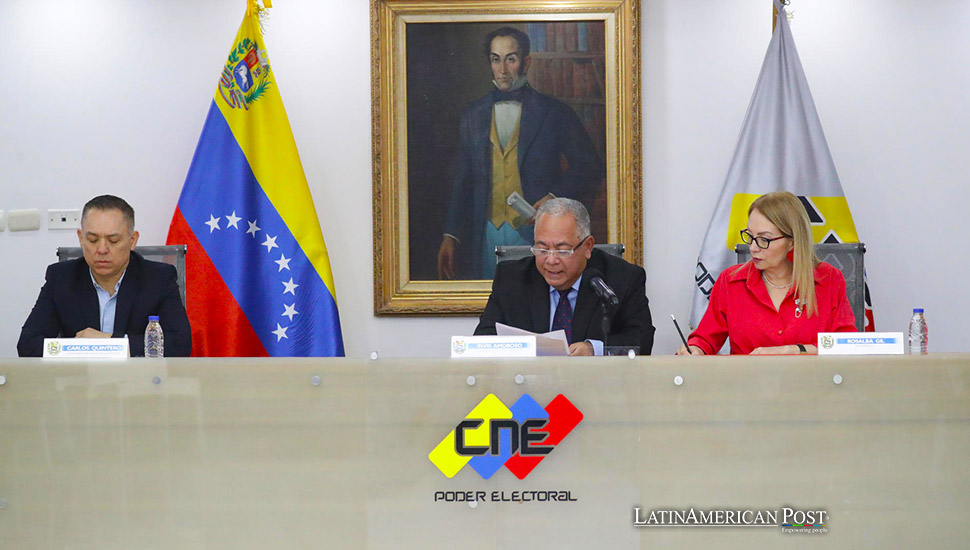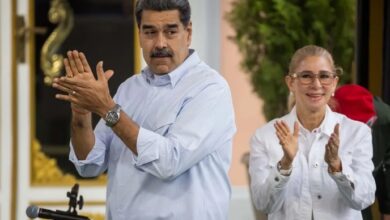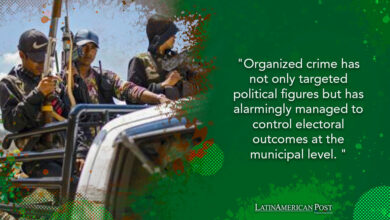Venezuela’s Election Fraud

The July 28 election in Venezuela has ignited widespread controversy, with claims of massive vote manipulation by Nicolás Maduro, leading to calls of the “biggest election steal” in the region’s modern history.
The political turmoil in Venezuela reached new heights on July 28, as the nation’s election results prompted outrage and accusations of extensive fraud. Observers and opposition leaders claim that President Nicolás Maduro orchestrated a staggering electoral manipulation, allegedly fabricating as much as 40% of his votes.
In the early hours of Monday, Venezuela’s National Electoral Council, under government control, announced that Maduro had won the election with 51.2% of the vote. This declaration stunned many, as it contrasted sharply with the opposition’s and independent exit polls’ counts, which indicated a decisive victory for the united opposition candidate, Edmundo Gonzalez Urrutia.
Opposition’s Stance and Evidence
Opposition leader Maria Corina Machado, who endorsed Gonzalez Urrutia after being barred from running herself, claimed to have concrete evidence proving the opposition’s victory. According to Machado, copies of voting tallies from various polling stations show that Gonzalez Urrutia secured 70% of the vote, leaving Maduro with only 30%. Machado asserted this was “the biggest margin of difference” in Venezuelan election history.
Several vital points support the opposition’s claims:
Pre-election Polls: All credible pre-election polls showed Gonzalez Urrutia leading substantially. A poll by the ORC consulting firm gave Gonzalez Urrutia 60% of the vote compared to Maduro’s 14.6%, reflecting a widespread dissatisfaction with the current regime.
Exit Polls: On election day, Edison Research, a respected polling firm, conducted an exit poll which concluded that Gonzalez Urrutia received 64% of the vote, while Maduro garnered only 31%. Edison’s Executive Vice President, Rob Farbman, stated that the government’s announced results were “completely contrary” to their findings, describing it as “basically a landslide for Gonzalez (Urrutia) and the opposition.”
Suspicious Delays and Restrictions: The Maduro regime delayed the release of voting results for six hours on election night and barred opposition leaders from accessing the vote tallies at the National Electoral Council. Additionally, detailed election results at the polling station level have yet to be published, further fueling suspicions of fraud.
Pre-election Manipulations
Maduro’s pre-election maneuvers also drew widespread criticism. He denied an estimated 4.5 million Venezuelans living abroad the right to vote, a group predominantly comprising government opponents. This disenfranchisement represented over 20% of the country’s total electorate. Moreover, famous opposition leaders, including Maria Corina Machado, were banned from running, and numerous opposition activists were arrested. The regime also imposed strict media censorship.
International Reactions and Historical Parallels
Former Bolivian President Jorge Tuto Quiroga, invited by the opposition to observe the election but denied entry by Maduro, described the event as “the biggest election steal in Latin America’s modern history.” Quiroga’s statement underscores the severity of the situation and its potential implications for the region.
Historically, such blatant electoral fraud has often led to significant backlash and political upheaval. For instance, Bolivia’s former leader, Evo Morales, faced mass protests and international pressure after rigging the 2019 elections, eventually forcing him to step down. Similarly, Ukraine’s fraudulent 2004 presidential election sparked the Orange Revolution, leading to a new election and the opposition’s victory.
Potential for Unrest
Doubts about the election results in Venezuela will likely grow, especially as Maduro withholds detailed voting machine tallies. If Maduro had legitimately won, transparency would serve his interests, demonstrating to both Venezuelans and the international community the integrity of the election. His refusal to release this data further proves the alleged monumental fraud.
The controversy surrounding the election results has already ignited protests and could lead to more significant unrest. The opposition’s strong evidence and the historical context of similar situations suggest that Maduro’s hold on power may be more precarious than it appears.
Also read: New Sanctions on Venezuela: A Necessary Step for Global Accountability
The July 28 election in Venezuela is critical to the nation’s ongoing political crisis. With accusations of extensive fraud and international scrutiny, the legitimacy of Maduro’s presidency is severely questioned. As opposition leaders challenge the results, the potential for significant political upheaval looms. The coming weeks will be crucial in determining whether Maduro can maintain his grip on power or if Venezuela will witness a transformative change driven by its resilient opposition.





